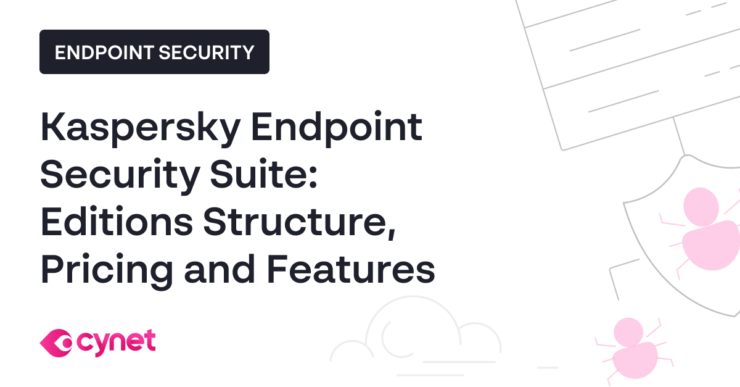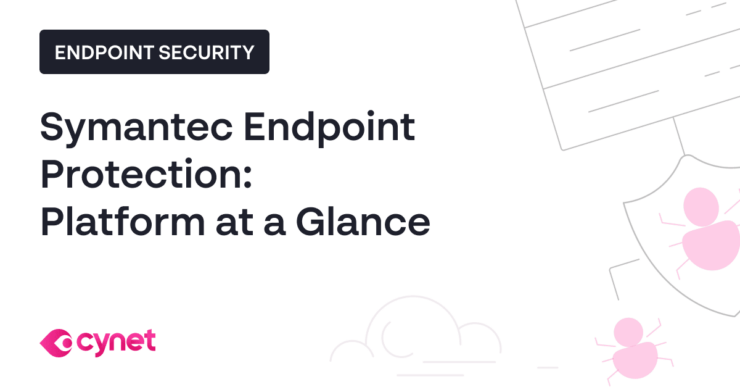December 27, 2023
Last Updated:
December 27, 2024
What Is Bitdefender?
Bitdefender is a cybersecurity and antivirus software company that provides a range of solutions for both personal and business use. Established in 2001, the company’s cybersecurity products are used by over 500 million users worldwide.
Bitdefender’s solutions range from basic antivirus and anti-malware protection to parental controls, file encryption, and secure online transactions. It comes with an engine designed to detect and remove various types of threats, including viruses, ransomware, rootkits, and spyware. The software also uses Artificial Intelligence (AI) and other methods to predict, prevent, detect, and remediate new and unknown cyber threats.
What Is Webroot?
Webroot offers a lightweight, cloud-based cybersecurity solution. Founded in 1997, it evolved from a simple antivirus provider to a broader cybersecurity solution.
Webroot provides real-time protection with a constantly-updating cloud-based threat database. It uses machine learning and AI to adapt and respond to emerging threats. Among its key capabilities are identity theft protection, secure browsing, and anti-phishing. It also provides a system optimizer that improves device performance by removing unnecessary files.
This is part of a series of articles about endpoint security.
Bitdefender vs. Webroot Features Comparison: 4 Key Differences
1. Protection Capabilities
Bitdefender provides multi-layered protection, using behavioral detection to monitor active applications closely and taking immediate action when suspicious activity is detected.
On the other hand, Webroot’s cloud-based architecture enables it to provide real-time protection. It can quickly detect and eliminate threats, minimizing the chance of any damage to your device. It can also protect from identity theft and phishing attacks, securing personal information and financial data.
2. System Performance
Both Bitdefender and Webroot attempt to minimize the impact to device performance. Bitdefender provides the Bitdefender Photon feature, which adapts to a system’s hardware and software configuration to save computing resources and improve speed and performance.
Webroot has a lightweight design. Its cloud-based architecture requires less space on the device. It also includes a built in System Optimizer tool that removes traces of online activity and deletes unnecessary files, improving device performance.
3. User Interface and Experience
Bitdefender offers an intuitive interface to access features and tools. It provides reporting that provides detailed information on a system’s protection status, intended for both users and security teams.
Webroot focuses on simplicity in its interface, which provides less control over security features than Bitdefender. Like Bitdefender, it provides reports on threats and system protection status.
4. Additional Tools
Aside from the basic protection features, both Bitdefender and Webroot come with additional tools. Bitdefender includes a password manager, a file shredder, and a vulnerability scanner. It also has a SafePay feature for secure online transactions and a parental control feature for monitoring and controlling internet activity by children.
Webroot’s additional tools include the System Optimizer, a backup and sync feature, and a firewall. It also provides webcam protection and integration with LastPass, a secure password manager.
Related content: Read our guide to Bitdefender EDR
Bitdefender vs. Webroot: Pricing and Packages
Bitdefender offers a range of packages to choose from. The Bitdefender Antivirus Plus package, for instance, provides basic protection for individuals. For small businesses or larger organizations, Bitdefender offers premium packages such as the Bitdefender Total Security or the Bitdefender GravityZone Business Security.
Webroot offers a simpler set of packages. Their most basic option is Webroot AntiVirus. The Webroot Internet Security Plus and Internet Security Complete packages provide more features.
In terms of pricing, both Bitdefender and Webroot provide similar value for money. Bitdefender’s packages may be a bit pricier, but also offer more features. Webroot’s packages are generally more affordable, making them more suitable for individual users and smaller businesses.
Bitdefender vs. Webroot: Pros and Cons
Bitdefender Pros and Cons
Bitdefender protects against all forms of malware, including viruses and ransomware, and protects against phishing attempts. It also offers additional features such as VPN, password manager, and parental controls.
However, Bitdefender can also be complex and overwhelming for less tech-savvy users. The system impact can be significant, especially during full scans, which may slow down your device.
Webroot Pros and Cons
Webroot has a lightweight design and performs fast scans, making it better suited for less powerful systems. Its cloud-based approach to malware detection also sets it apart from traditional antivirus software. Webroot is also less expensive than Bitdefender across most package options.
However, Webroot’s malware protection is not as comprehensive as Bitdefender’s. The lack of additional features in its basic packages may also be an issue for some users.
Related content: Read our guide to endpoint security management
Bitdefender vs. Webroot: How to Choose
If you need broader protection and don’t mind the complexity, Bitdefender is probably the better choice. Its wider range of features and stronger malware protection make it suitable for those organizations that are willing to invest more in cybersecurity.
On the other hand, if you’re looking for a lightweight, simple, and affordable solution, Webroot may be a better option. Its fast scans and lower system impact make it more appropriate for older or less powerful systems.
Cynet: Ultimate Bitdefender and Webroot Alternative
Cynet 360 is a holistic security solution that protects against threats to endpoint security and across your network. Cynet provides tools you can use to centrally manage endpoint security across the enterprise.
Cynet’s intelligent technologies can help you detect attacks by correlating information from endpoints, network analytics and behavioral analytics with almost no false positives.
With Cynet, you can proactively monitor entire internal environments, including endpoints, network, files, and hosts. This can help you reduce attack surfaces and the likelihood of multiple attacks.
Cynet 360 provides cutting edge EDR capabilities:
- Advanced endpoint threat detection—full visibility and predicts how an attacker might operate, based on continuous monitoring of endpoints and behavioral analysis.
- Investigation and validation—search and review historic or current incident data on endpoints, investigate threats, and validate alerts. This allows you to confirm the threat before responding to it, reducing dwell-time and performing faster remediation.
- Rapid deployment and response—deploy across thousands of endpoints within two hours. You can then use it to perform automatic or manual remediation of threats on the endpoints, disrupt malicious activity and minimize damage caused by attacks.
Learn more about our EDR security capabilities.
In addition, Cynet All-in-One provides the following endpoint protection capabilities:
- NGAV—providing automated prevention and termination of malware, exploits, Macros, LOLBins, and malicious scripts with machine learning-based analysis.
- User Behavior Rules—detecting and preventing attacks using compromised credentials through the use of behavioral baselines and signatures.
- Deception technology—planting fake credentials, files, and connections to lure and trap attackers, mitigating damage, and providing the opportunity to learn from attacker activity.
- Monitoring and control—providing asset management, vulnerability assessments, and application control with continuous monitoring and log collection.
- Response orchestration—providing manual and automated remediation for files, users, hosts, and networks customized with user-created scripts.
Learn more about the Cynet All-in-One security platform.


